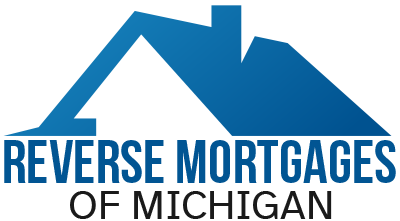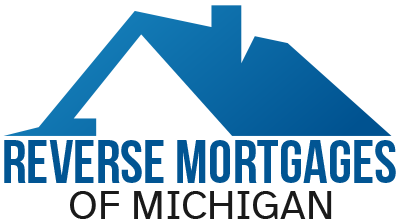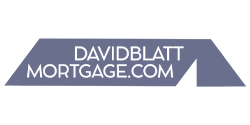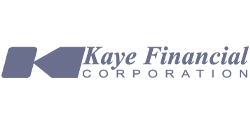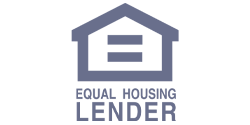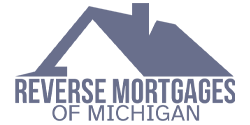No mandatory monthly payments. A great way to improve your retirement. Receive cash for any reason. Line of credit that grows annually. Retain ownership of your home. Loan proceeds are tax free. Insurance premiums for long term care.
HECM Loans
What is a HECM loan? Find out the features, benefits, and qualifications. Contact David Blatt for more information today.
- Home
- Reverse Mortgages
- HECM Loans

David Blatt
NMLS #114358
Curious about Reverse Mortgages? Have questions, thoughts, or just want to chat?
Exceptional 4.94 rating
FHA Insured Reverse Mortgage
Considering a reverse mortgage? The Home Equity Conversion Mortgage (HECM) is the only program backed by the U.S. Federal Government. This trusted option allows seniors aged 55 and older to tap into their home equity and convert it into cash, potentially enhancing their retirement lifestyle.
Interested in learning more about how a HECM loan can benefit you? Contact David Blatt today! He can answer your questions and help you determine if this program aligns with your financial goals.
HECM Loan
HECM stands for Home Equity Conversion Mortgage, a government-insured program specifically designed for homeowners aged 55 and older. A HECM allows you to tap into the value of your home, increasing your cash flow and potentially enriching your retirement lifestyle.
Imagine the freedom of living in your cherished home without the burden of a traditional monthly mortgage payment¹. Instead, you could receive regular loan proceeds, reaping the rewards of your years of investment. The beauty of a HECM loan? Repayment isn’t due until you sell the home, the last borrower passes away, permanently leaves the residence, or breaches the loan terms.
However, it’s important to remember that responsible homeownership continues. HECM borrowers are required to maintain the property, keep current on property taxes, and hold homeowner’s insurance to avoid triggering loan repayment. For more information on HECM guidelines, please visit our reverse mortgage page.
A reverse mortgage offers a unique opportunity for seniors – a chance to access a portion of your home’s value while enjoying the comfort and familiarity of your longtime residence. It’s your home, and now it can work for you!
¹ Borrowers are still responsible for property taxes, homeowner’s insurance, and home maintenance costs.
Features, Advantages, and Qualifications
A key advantage of a HECM loan is that ownership and title to your home remain firmly in your hands. It’s still your cherished haven, but now you can unlock the equity you’ve built up over the years.
HECM loans also offer peace of mind – your home itself is the primary security for the loan. There’s no need to worry about putting other assets at risk.
HECM Loan Insurance: Added Security: As a government-insured program backed by the Federal Housing Administration (FHA), HECM loans come with an additional layer of protection. The FHA requires a Mortgage Insurance Premium (MIP) to be collected at closing and throughout the life of the loan. These premiums are added to your loan balance. The upfront MIP is based on the appraised value of your home or a maximum of $1,149,825 (the 2024 national HECM limit), whichever is lower. Ongoing FHA insurance premiums are then calculated based on your monthly loan balance.
Benefits of FHA Insurance: This insurance provides valuable protections for both borrowers and their heirs, including:
- The borrower(s) are not required to pay more than the home’s fair market value.
- If the loan balance exceeds the value of the home, FHA reimburses the lender for the difference when the estate sells the home.
- Payments made to the borrower by the lender are insured by FHA. If the lender is unable to continue making payments, the payments would be made by FHA.
- If the loan balance grows and exceeds the home’s present market value, the lender cannot take title. FHA ensures that borrowers can live in their home as long as basic loan obligations are met (homeowner’s insurance in force, property tax payments current, and the home is maintained in good condition).
To maintain ownership of the home when the reverse mortgage reaches maturity, heirs have the option to retain the property by paying 95% of its appraised value, minus standard closing expenses and real estate agent fees.
A reverse mortgage allows you to draw from the value in your home without having to sell it.
Imagine residing in a home whose value has appreciated over the years, witnessing its growth firsthand. However, you may encounter challenges in managing bills and healthcare expenses. Faced with a difficult decision, you ponder whether to part with your cherished home, an invaluable asset, or persist in residing there while grappling with mounting financial pressures. Now envision this dilemma swiftly resolved.
“My house has been my home for most of my life. I can’t leave, but I can’t afford to stay.
A reverse mortgage loan provides you with the opportunity to access a portion of your home’s value without the necessity of selling it, potentially enabling you to receive regular cash flow payments. Repayment of the loan occurs upon the sale of your home, the passing of the last borrower, cessation of primary residence occupancy, or non-compliance with loan terms.
The utilization of loan proceeds is entirely at your discretion, whether it involves bolstering your retirement, undertaking home renovations, settling bills, and more—it’s entirely your choice.
To safeguard borrowers, obtaining counseling from an independent HUD-approved third-party counselor is mandatory before incurring any expenses related to the loan, apart from the counseling fee. While reverse mortgage proceeds are not subject to personal income tax, it’s advisable for borrowers to seek tax advice to understand potential implications on government needs-based programs such as Medicaid and Medi-Cal.
This advertisement does not serve as financial advice. Please consult with a financial advisor regarding your specific circumstances. Certain conditions may lead to loan maturity and the balance becoming due and payable. Borrowers remain responsible for property taxes, homeowner’s insurance, and maintaining the property to HUD standards. Failure to comply could trigger loan maturity. Credit approval is contingent upon age, income standards, credit history, and property qualifications. Program rates, fees, terms, and conditions may vary by state and are subject to change.
Borrowers are encouraged to seek professional tax advice concerning reverse mortgage proceeds.
Licensed to do business in the State of Michigan Arizona California Colorado Florida Tennessee
Secure an accurate Reverse Mortgage quote
No commitment required.
Any information collected from this form will not be sold, shared, or rented to others. At any point, feel free to e-mail or call us regarding any questions you may have. Did you notice our website is secure and encrypted? Our SSL uses SHA-2 and 2048-bit encryption that’s the strongest encryption on the market today.
Customer Support
Resources
and case studies
Gain valuable insights from my research and case studies on reverse mortgages and home loans.
01
A Home Equity Conversion for Purchase
A Home Equity Conversion for Purchase loan or H4P, is a safe, FHA federally insured loan program that helps seniors purchase a home more suited to their retirement lifestyle.
02
Who Qualifies for A Reverse Mortgage?
You're considering a reverse mortgage to assist with your retirement finances, but are you eligible? Find out how to qualify by watching this video.
03
Why Should Seniors Consider a Reverse Mortgage?
By arranging a reverse mortgage ahead of time, before any emergencies occur, you'll have extra cash available when needed.
